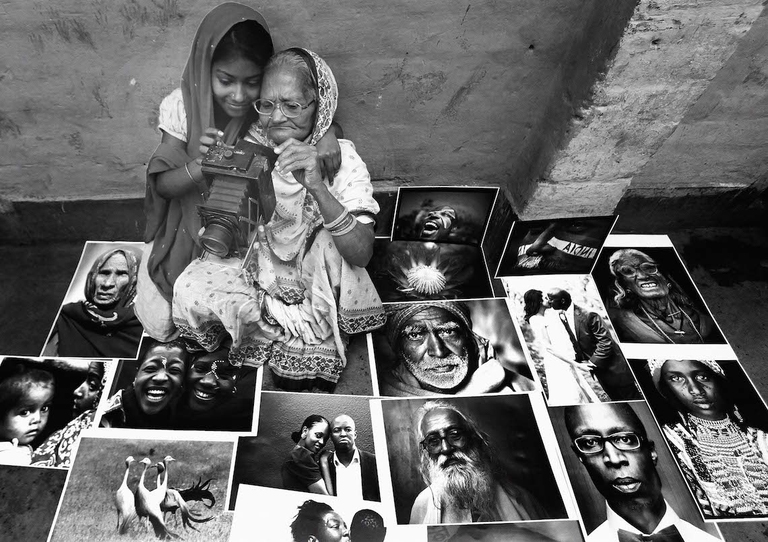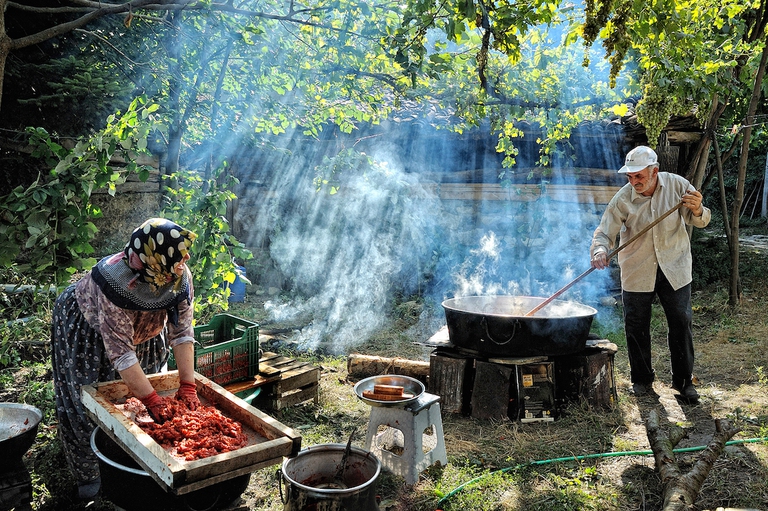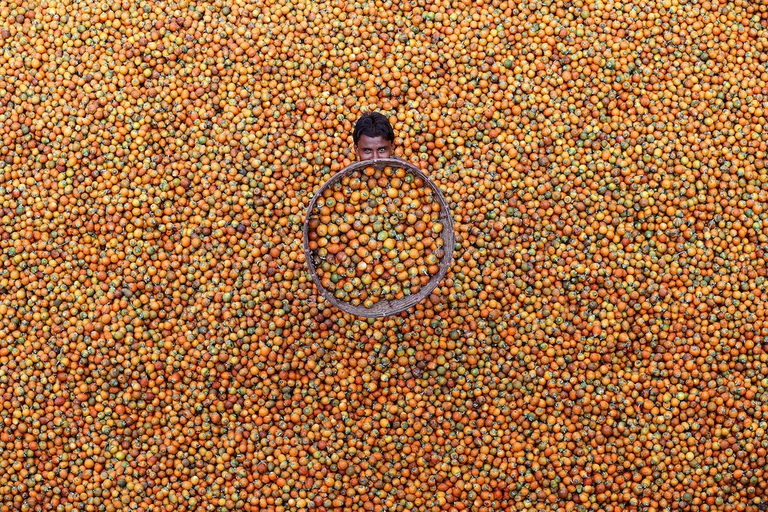
As per tradition after 12 years India held Mahakumbh, the world’s largest spiritual congregation that has been attracting pilgrims from across the globe.
Every year for a decade the Consultative Group to Assist the Poor (CGAP) has organised a photography competition that highlights the lives and struggles of the world’s poor. This edition’s winner, announced on the 27th of October, is Indian primary school teacher Sujan Sarka. His photo Paddy Cultivation captures the livelihood of rice paddy field
Every year for a decade the Consultative Group to Assist the Poor (CGAP) has organised a photography competition that highlights the lives and struggles of the world’s poor. This edition’s winner, announced on the 27th of October, is Indian primary school teacher Sujan Sarka. His photo Paddy Cultivation captures the livelihood of rice paddy field workers in West Bengal, India.
The CGAP is a think tank housed at the World Bank’s headquarters in the United States capital of Washington, D.C. It is a partnership bringing together over thirty organisations with the aim of developing innovative solutions to encourage financial inclusion by providing the poor with access to financial services. The World Bank has estimated that two billion people in the world can’t access basic finance such as savings, credit and insurance. According to the latter organisation as well as the CGAP and the United Nations’ Sustainable Development Goals (SDGs) financial inclusion is key to fighting economic poverty, which the World Bank defines as living on less that $2 a day.
“The Photo Contest enables us to show in a very visual way the resilience and challenges facing the working poor. It puts a face on financial inclusion and the work we do, ” explains Greta Bull, CEO of CGAP. The aim is to highlight the positive effects banking services have on those who are financially insecure. This year’s themes were digital financial services and mobile banking, women‘s use of financial services, microfinance for small business enterprises, and smallholder farmers and their families.
Three judges deliberated on more than 3,300 photos taken by professional and amateur photographers from 77 countries. Sujan Sarka, the winner, will receive $2,000 to spend on photography equipment and his photograph Paddy Cultivation will be displayed on one of the iconic screens, known as Jumbotrons, in New York’s Time Square. “Life is a struggle for these people,” Sarka says referring to the subjects of his photograph. “But working together as a family on their own field, growing the crops and then harvesting that crop, brings a feeling of joy and satisfaction on their faces”.
Fishing with the Net by Liming Cao, showing fishermen working in the early hours of the morning in China, won second prize. Third place went to Pranab Basak for the photo Hands for Freedom, which the judges say captures the essence of love. It features a teenage girl helping her father in his pottery workshop, another scene of working life in West Bengal like that seen in Paddy Cultivation. Other winners were announced in categories related to six geographic regions and the 2015 edition’s themes.
The stunning photographs of the CGAP’s photo competition remind us of the diverse and ingenious professions people pratice around the world. Not only does dignified, adequately remunerated work allow individuals, families and communities to sustain themselves, it gives a sense of self-worth that allows them to thrive and not just survive.
Siamo anche su WhatsApp. Segui il canale ufficiale LifeGate per restare aggiornata, aggiornato sulle ultime notizie e sulle nostre attività.
![]()
Quest'opera è distribuita con Licenza Creative Commons Attribuzione - Non commerciale - Non opere derivate 4.0 Internazionale.
As per tradition after 12 years India held Mahakumbh, the world’s largest spiritual congregation that has been attracting pilgrims from across the globe.
Workers in tea gardens of West Bengal, India, that produces Ctc tea for domestic consumption complain that they have been devoid of basic facilities while political parties make hollow promises during every elections which are never fulfilled.
India is in the middle of the elections, but sadly none of the politicians have uttered a word on man-animal conflict that has been devouring several lives every year.
Manipur, a state in north-east India, is still reeling under the tremors of violence that broke out last year devouring lives and paralyzing the economy.
The government of Tanzania is currently planning to evict more than 80.000 indigenous Maasai people from their ancenstral land
A new UNU-INWEH report on the global bottled water industry reveals the massive scale of this market and the lack of strict quality controls.
Isatou Ceesay founded a social enterprise that is helping to fight plastic pollution and empowering women and young people to gain economic independence.
In 2020, Mihela Hladin made a radical decision that many, in recent times, have probably considered. This is her story, with photos by Matt Audiffret.
The Brazilian government has started evicting illegal gold miners, responsible for the health emergency that has hit the Yanomami people.










